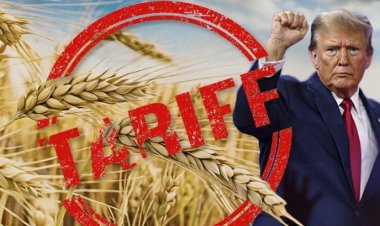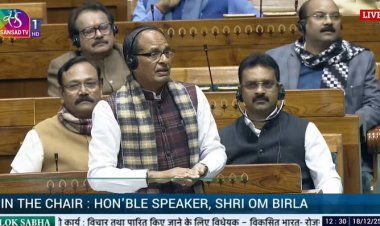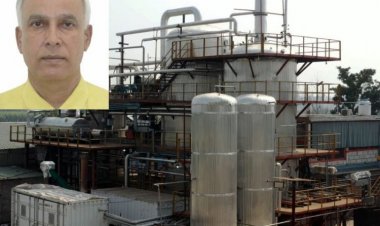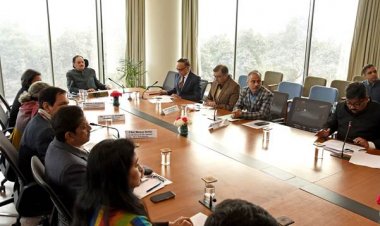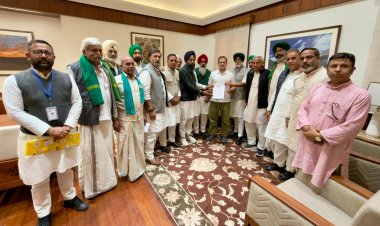Swadeshi Jagran Manch suggests comprehensive reforms for Pesticide Management Bill 2020
Swadeshi Jagran Manch says that the country needs a better and more comprehensive law for crop security that should be focused on pesticide management and at the same time help increase domestic production and self-reliance instead of promoting the imports of pesticides. The organization apprised the Standing Committee on Agriculture of its views in a memorandum submitted to the latter regarding the Pesticide Management Bill 2020.
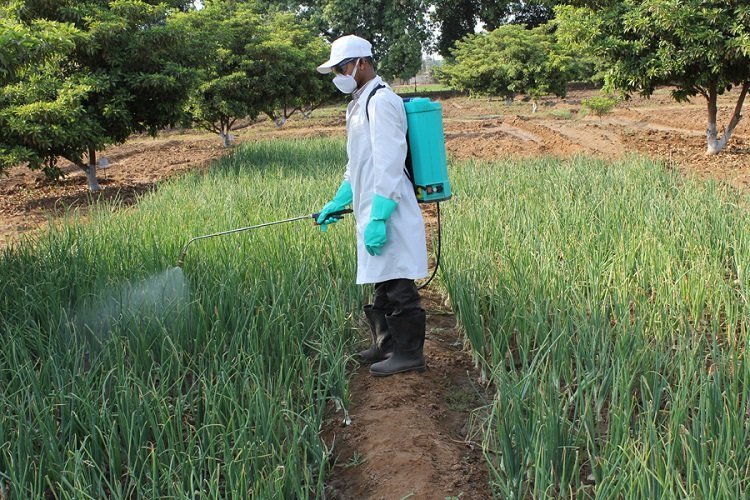
Swadeshi Jagran Manch (SJM) says that the country needs a better and more comprehensive law for crop security that should be focused on pesticide management and at the same time help increase domestic production and self-reliance instead of promoting the imports of pesticides. The organization apprised the Standing Committee on Agriculture of its views in a memorandum submitted to the latter regarding the Pesticide Management Bill (PMB) 2020. The memo details the comprehensive reforms SJM wants to be incorporated in the bill and the serious issues that need to be addressed.
In a detailed statement, SJM says that after a perusal of PMB 2020, it wishes to point out the shortcomings and gaps which are needed to be taken note of and necessary changes that are required to be made to achieve the national objectives of ‘Atmanirbhar Bharat’ and safety from hazardous impacts of pesticides.
The country at present is hugely dependent on the imports of pesticides despite the fact that it has huge potentials with respect to the manufacturing of pesticides. Moreover, due to faulty rules favouring imports, imports of pesticides were encouraged against the interests of domestic manufacturing. Unfortunately, the present draft doesn’t include sufficient provisions to safeguard domestic manufacturing. On the contrary, there still exist many provisions which promote the importers’ and foreign interests.
SJM suggests following inclusion in Section 18 of the draft PMB 2020: “(The) Registration Committee (RC) has the rights to refuse the registration for import of ready-made pesticides if (a) that pesticide is already registered and being manufactured in India; (and) (b) if the committee is satisfied that alternatives are available in the country.” This would promote domestic manufacturing, and save the economy from import dependence.
Through an amendment in rules, the Central Insecticides Board (CIB) and the RC waived off an important safety provision in 2007. Earlier, the registration of “technical grade” and the monitoring of the chemical composition of this technical grade post-registration was an integral part of the Insecticide Act 1968 to ensure farmer’s safety. The waiving off of this important safety provision for importers impacted farmers’ security and environment safety as well as domestic manufacturing.
There is a need, says the memo, to correct this lapse in the old Act and include the following provisions in Section 18 of the Draft PMB 2020: The RC shall not register a pesticide if (a) the “Technical Grade” of the pesticide is not registered in India; (b) it is satisfied that the pesticide does not meet the claims of safety or efficacy submitted by the applicant; (c) where applicable, maximum residue limits of the pesticides on crops and commodities have not been specified under the Food Safety and Standards Act 2006. The inclusion of these provisions in the bill would enable the regulators to withdraw the “Technical Grade” samples for monitoring the expiry and associated impurities.
SJM says that there is a clause in Section 22(1) in the draft PMB 2020, which gives an unwarranted advantage to the multinational companies (MNCs), who generally happen to be the first registrants. This Section 22(1) needs to be deleted. There is no need to empower the “First Registrant” to manipulate the registration of the “Subsequent Registrants” in India.
Some other suggestions are as follows: Assembly and repackaging should not be equivalent to manufacturing as most of the importers are selling the imported pesticides in different brands without value addition and threatens the survival of the domestic manufacturers. To regulate the imports of pesticides, a provision for imposition of non-tariff barriers should be made to safeguard the life of plants, animals and human beings by way of legal provisions on the lines of the World Trade Organization (WTO) restrictions for Sanitary and Phyto Sanitary (SPS) measures and Technical Barriers to Trade (TBT).
To safeguard the interests of domestic manufacturers, strict provisions should be made in the PMB 2020 not to allow data exclusivity to the innovator company. This would make it possible for Indian manufacturers to produce these chemicals in India after the expiry of the patent.
Bio-pesticides and organic/natural pesticides had been the speciality of Indian agriculture and have a huge potential in modern agriculture. The proposed Act does not provide adequate recognition, legitimacy, level playing field and registration processes to these novel products. SJM firmly advocates and proposes to include a special framework for these safer alternatives to provide poison-free food to the country’s populace.
Environmental Safety, Farmers’ Health and Soil Preservation
The processes of the review of pesticides after registration have not been streamlined. There are other countries that review every registered pesticide periodically five years after registration to assess the safety of the pesticide based on the latest scientific evidence. Further, such a review requires an independent mechanism separate from the body that does the registration in the first instance. In the new PMB, registration and review are proposed to be done by the same body (Registration Committee). Now, the body which has registered them will not be best placed to review those pesticides itself. A separate Review Committee consisting of bio-safety experts must be constituted to review pesticides in order to avoid any bias.
A multi-ministerial, broad-based body with representatives from state governments, farmers etc., in the form of Pesticide Management Board is being proposed in the new Bill, to replace the Central Insecticides Board in the extant legislation. However, it is being envisaged only as an advisory body with all regulatory authority actually vested in the Registration Committee consisting of a few technical persons. The Pesticides Management Board has to become an empowered regulatory body with oversight authority over ‘Registration Committee’ and the proposed ‘Review Committee’ as well.
The regulation of pesticides should be free from the influence of the pesticide industry and importers lobby to avoid any possible conflict of interest. The new Bill’s provisions for the prevention of conflict of interest are weak and inadequate. They must be strengthened at all levels amongst all human resources involved in the regulatory regime.
The new Bill misses out on many key points; for instance, it does not specifically and mandatorily list factors such as antidote availability, transparent, independent scrutiny of information on the need, alternatives and long-term comprehensive bio-safety of a pesticide (the legal language used in the Bill makes such testing optional), and the precautionary approach being adopted based on bans in other countries.
SJM recommends that the proposed Pesticide Management Board should include independent specialists, beekeeping experts, pollinators, zoologists, marine biologists and also foreign trade experts, including specialists from the Director General Foreign Trade to appreciate the impact of pesticide usage on exports.



 Join the RuralVoice whatsapp group
Join the RuralVoice whatsapp group



















